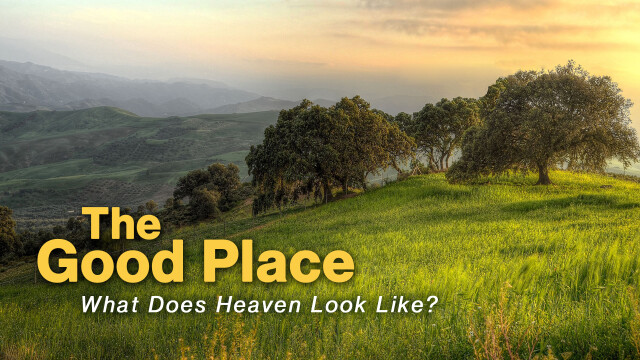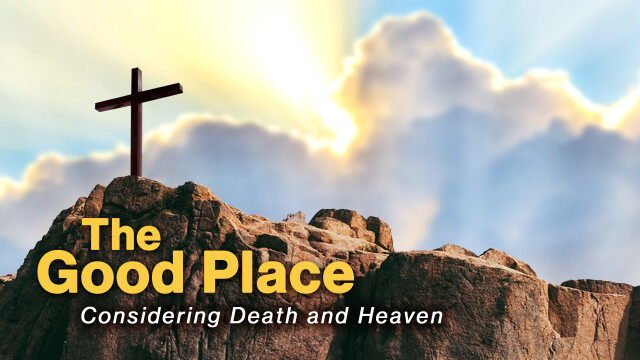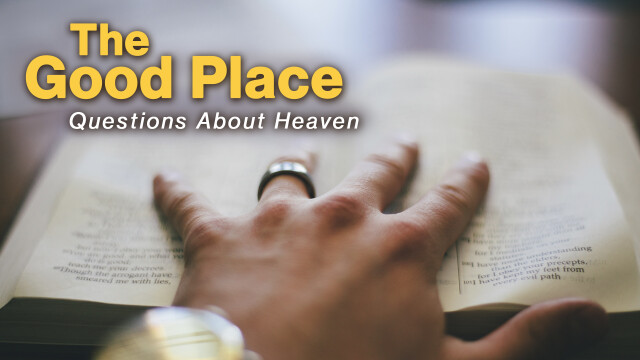Series: The Good Place
November 03, 2019 | Pastor Chris Riedel
Passage: Romans 8:31-39
Scripture:
For the wages of sin is death; but the gift of God is eternal life through Jesus Christ our Lord. - Romans 6:23
Devotional:
Hell confounds me. If I could dismiss the concept entirely, I would. But I can’t. Because like it or not, the idea of Hell is central to my faith journey. My faith journey began with love; love of a parent leading me to a loving God. But as childhood morphed into adolescence, my faith waivered and it was the fear of eternal unending suffering that kept me on the straight and narrow. As an adult, the very thing that enforced my belief became part of its undoing. Because accepting ramifications of hell, as it was taught to me, poisoned the faith that I held. Just a small taste of suffering in my life made the idea of eternal suffering seem monstrous.
When I rediscovered my faith, I had to, once again, grapple with the idea of a place of punishment. I used what is known as the Wesleyan Quadrilateral to map my journey.
Ultimately, what I think has no bearing on reality. There are plenty of arguments on both sides of the equation. I am no theologian. But I think each of us must wrestle with these ideas. Because how we view eternity informs the way we live out our faith. Here is how I dealt with this weighty topic.
1. Scripture: There are many verses supporting the idea of hell. But there are many scriptures that point to a much more benign place for the dead. And of course, there is the verse I started this reflection on which states the wages of sin is death. But even the word death can be alternately interpreted as just plain dead or “wretchedness in the lower world.”
2. Tradition: Digging into our faith’s roots, the Sadducees of Jesus’ time did not believe in an afterlife at all. The New Testament speaks of both a place of punishment and death. Dante, who lived in the 14thcentury, has had a profound impact on how the church views hell. His Inferno spells out a very grim destiny for sinners: eternal torture. Some modern thinkers like Rob Bell, almost dispense with the idea of hell all together. In his work Love Wins he argues that God wants all of humanity to be saved and what God wants, God gets.
3. Reason: This is where I start to move away from the pack. For me it boils down to this simple question: Is it reasonable to inflict eternal suffering to punish the sins of a finite life, no matter how wicked the person?
4. Experience: This is where I will stake my claim. In John chapter 14, Jesus promises to send us the Spirit, after his departure. God’s Spirit is as available to us today as it was at the birth of the church. And when I mediate on Christ and his work on earth, I only get a sense of love, boundless penetrating love. When I ponder any thoughts of eternal, unending punishment, it does not resonate with my spirit. Nor does it resonate with what I sense from the Spirit of God.
These are just my evolving thoughts. But I believe it does impact the way that I live. If I choose fear, then fear will likely inform the way I share my faith with others. If I choose limitless love, that too will change the way I engage the world.
Prayer:
Spirit of God, touch my life and lead me in the way that leads to eternal love. Help me to serve as a beacon to others along the way.
Written by Ben Roberts. Ben is a Congregational Care Minister and also leads one of the Men's Ministry groups. He lives in Ashburn with his wife Jennifer and their son Ethan.





